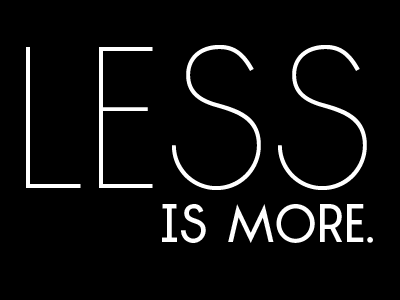The Thai Health Promotion Foundation (THPF) and Ogilvy Thailand won a Bronze Outdoor Lion at Cannes in 2012, Gold Special Event and Silver Online awards at the 2013 Clio AWards, Gold for Special Service at the One Show Awards, a Silver Film Lotus at the 2013 Adfest Awards using children to challenge adult smokers.
The video when released went viral and has millions of views worldwide.
Compare the results of the ad whereby almost every adult who received the note stopped to think and threw away their cigarette. No adult, however, threw away the note to the “shock and awe” images used here in Australia trying to scare people into not smoking.

Which one do you think has more impact?
As a non-smoker I believe the commitments made by the adults in the video (i.e. telling the children smoking is not good for them) and then the question from the child querying why they are not remaining consistent with their statements is a powerful use of the Principle of Commitment and Consistency.
If nothing else it certainly makes you think differently about the stop smoking campaign!
The post Commitment & Consistency appeared first on Social Influence Consulting Group.
 In many civilizations, business and social exchanges, are started and settled by the giving and receiving gifts. Marcel Mauss postulated in his classic work The Gift (1924) that various cultures practice reciprocal gift giving and by the act of giving an initial gift an obligation is triggered in the receiver in that they are obligated to repay the debt to the gift giver.
In many civilizations, business and social exchanges, are started and settled by the giving and receiving gifts. Marcel Mauss postulated in his classic work The Gift (1924) that various cultures practice reciprocal gift giving and by the act of giving an initial gift an obligation is triggered in the receiver in that they are obligated to repay the debt to the gift giver. I have some persuasive advice for you – Bite your lip and stay silent for a while. Normally when I talk about persuasion I offer up ways to proactively connect on the six principles of influence. But sometimes silence is golden because quite often less is more. Allow me to ask you a few questions to drive home why this is the case.When will people appreciate your advice most? When they ask for it. When do people appreciate your “gifts” most? When they want them. So why do we keep offering advice and giving gifts to people before they ask?There is a time and place for offering up help, sharing advice and giving gifts. Initiating on each of these engages the principle of reciprocity because quite often the other person will feel some obligation to give back to you. However, there are times when they’ll appreciate what you have to offer even more. That time is when they seek you out and ask for it. I’ve noticed this much more as of late at work and home. Since my daughter Abigail was a toddler I’ve always made it a priority to spend time with her. For many years it was a father-daughter group through the YMCA known as Indian Princess. Next it was taekwondo for about five years. More recently it’s been time every weekend at coffee shops. I was the initiator with all of these.When we stopped going to taekwondo it was a combination of her losing interesting plus being busy with high school and an after school job. A while ago she approached me about starting back up with taekwondo. Initially I said no because of my training-related travel, her work schedule and I just didn’t think she’d be dedicated enough to make it several times a week. More time passed and I still resisted which made her want it even more. That’s scarcity in action because the less available something is the more we tend to want it.I finally relented and told her when summer rolls around and she’s on break and my travel lightens up that we’ll join taekwondo for the summer to see how it goes. Do you think she’ll be more into it and appreciate it more because she had to wait and pursue me on it? You bet!Another example happened recently. Abigail shared a string of texts she had with a boy. I had some strong opinions about the “conversation” as I listened but I didn’t offer up any thoughts. I kept reminding myself she’s an adult (she turned 18 years old in December) and can handle herself. Finally she asked my opinion but I didn’t say anything so she asked again. She could see I was thinking and was curious. I knew at that point she’d value what I had to say far more than if I just offered up my opinion unprompted.I’ve also noticed the same phenomenon at work. Over the years I’ve established expertise in several areas but I try to hold back until someone wants what I have. This goes for my training, coaching and consulting. When someone seeks me out, they’ll value what I can offer much more. Here are a few keys to help make this approach more effective.1. Establish your expertise and trustworthiness. Both of these elements will add to your authority and make people rely on your wisdom even more. If you don’t have expertise, at least in business, there’s no real reason people will seek you out. On the flip side, if you’re not trustworthy then it won’t matter how smart you are. You need both!2. Start by giving. Even if you have expertise people may be unaware of that fact. When you start by giving, you show what you’re capable of and engage reciprocity. Doing this helps establish a relationship which will make others feel more comfortable approaching you down the road.3. Withhold a little bit. As noted earlier, people want more of what they can have less of. That’s scarcity. If you constantly offer up advice without being asked or make yourself available 24×7 then you’re missing the chance to leverage scarcity.So next time you’re tempted to jump in with your two cents, bite your lip and remember, quite often, less is more. Give it a try and let me know what you notice about others’ response to you.
I have some persuasive advice for you – Bite your lip and stay silent for a while. Normally when I talk about persuasion I offer up ways to proactively connect on the six principles of influence. But sometimes silence is golden because quite often less is more. Allow me to ask you a few questions to drive home why this is the case.When will people appreciate your advice most? When they ask for it. When do people appreciate your “gifts” most? When they want them. So why do we keep offering advice and giving gifts to people before they ask?There is a time and place for offering up help, sharing advice and giving gifts. Initiating on each of these engages the principle of reciprocity because quite often the other person will feel some obligation to give back to you. However, there are times when they’ll appreciate what you have to offer even more. That time is when they seek you out and ask for it. I’ve noticed this much more as of late at work and home. Since my daughter Abigail was a toddler I’ve always made it a priority to spend time with her. For many years it was a father-daughter group through the YMCA known as Indian Princess. Next it was taekwondo for about five years. More recently it’s been time every weekend at coffee shops. I was the initiator with all of these.When we stopped going to taekwondo it was a combination of her losing interesting plus being busy with high school and an after school job. A while ago she approached me about starting back up with taekwondo. Initially I said no because of my training-related travel, her work schedule and I just didn’t think she’d be dedicated enough to make it several times a week. More time passed and I still resisted which made her want it even more. That’s scarcity in action because the less available something is the more we tend to want it.I finally relented and told her when summer rolls around and she’s on break and my travel lightens up that we’ll join taekwondo for the summer to see how it goes. Do you think she’ll be more into it and appreciate it more because she had to wait and pursue me on it? You bet!Another example happened recently. Abigail shared a string of texts she had with a boy. I had some strong opinions about the “conversation” as I listened but I didn’t offer up any thoughts. I kept reminding myself she’s an adult (she turned 18 years old in December) and can handle herself. Finally she asked my opinion but I didn’t say anything so she asked again. She could see I was thinking and was curious. I knew at that point she’d value what I had to say far more than if I just offered up my opinion unprompted.I’ve also noticed the same phenomenon at work. Over the years I’ve established expertise in several areas but I try to hold back until someone wants what I have. This goes for my training, coaching and consulting. When someone seeks me out, they’ll value what I can offer much more. Here are a few keys to help make this approach more effective.1. Establish your expertise and trustworthiness. Both of these elements will add to your authority and make people rely on your wisdom even more. If you don’t have expertise, at least in business, there’s no real reason people will seek you out. On the flip side, if you’re not trustworthy then it won’t matter how smart you are. You need both!2. Start by giving. Even if you have expertise people may be unaware of that fact. When you start by giving, you show what you’re capable of and engage reciprocity. Doing this helps establish a relationship which will make others feel more comfortable approaching you down the road.3. Withhold a little bit. As noted earlier, people want more of what they can have less of. That’s scarcity. If you constantly offer up advice without being asked or make yourself available 24×7 then you’re missing the chance to leverage scarcity.So next time you’re tempted to jump in with your two cents, bite your lip and remember, quite often, less is more. Give it a try and let me know what you notice about others’ response to you. Brian Ahearn, CMCT® Chief Influence Officer influencePEOPLE Helping You Learn to Hear “Yes”.Cialdini “Influence” Series! Would you like to learn more about influence from the experts? Check out the Cialdini “Influence” Series featuring Cialdini Method Certified Trainers from around the world.
Brian Ahearn, CMCT® Chief Influence Officer influencePEOPLE Helping You Learn to Hear “Yes”.Cialdini “Influence” Series! Would you like to learn more about influence from the experts? Check out the Cialdini “Influence” Series featuring Cialdini Method Certified Trainers from around the world.